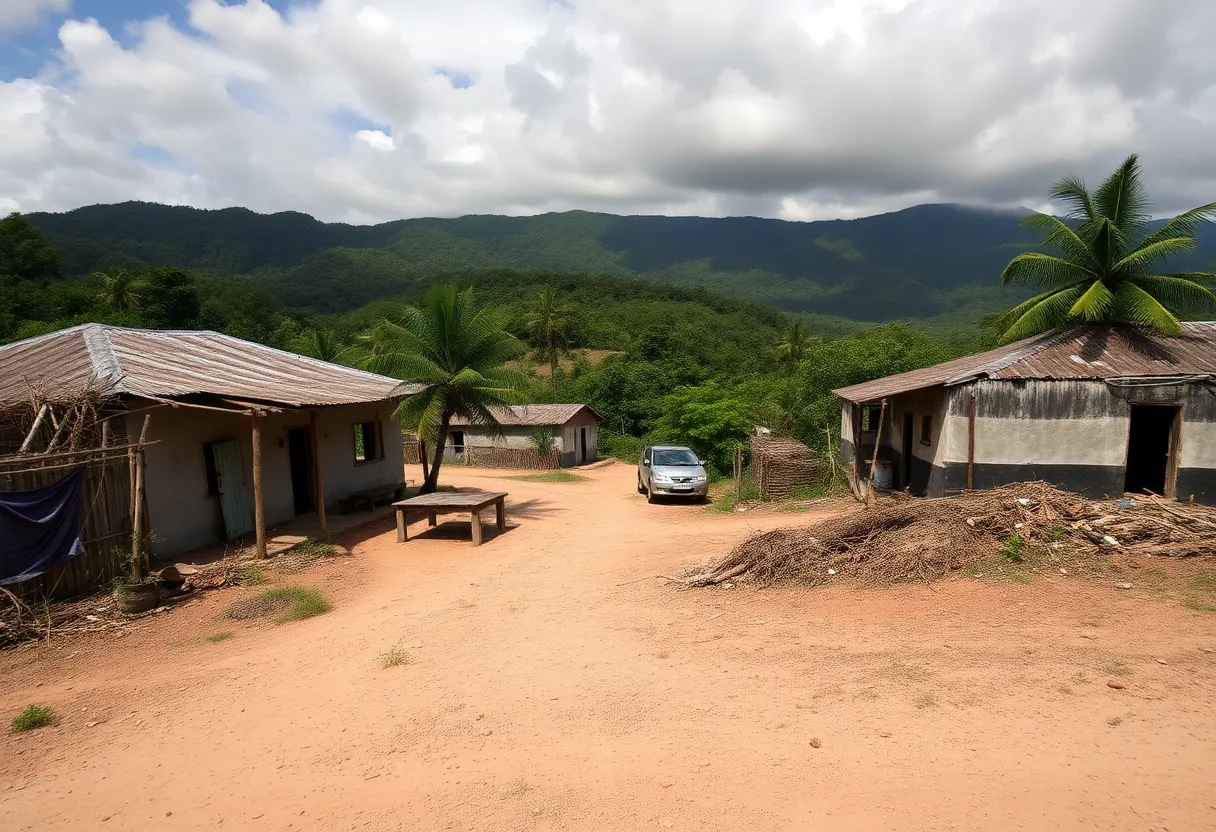

A contrasting view of Haiti's natural beauty and troubling conditions.
Want to target the right audience? Sponsor our site and choose your specific industry to connect with a relevant audience.
Prominent brand mentions across targeted, industry-focused articles
High-visibility placements that speak directly to an engaged local audience
Guaranteed coverage that maximizes exposure and reinforces your brand presence
Interested in seeing what sponsored content looks like on our platform?
May’s Roofing & Contracting
Forwal Construction
NSC Clips
Real Internet Sales
Suited
Florida4Golf
Click the button below to sponsor our articles:
Sponsor Our ArticlesThe U.S. Department of Homeland Security plans to terminate Temporary Protected Status (TPS) for around 521,000 Haitians by September 2025. This controversial decision comes amid ongoing violence and instability in Haiti, raising concerns about the safety of returning citizens. Critics and advocacy groups argue that despite claims of improved conditions, the humanitarian crisis continues. The situation leaves many Haitians facing difficult choices regarding their future and raises broader questions about U.S. immigration policies.
In a move that has raised eyebrows and sparked discussions across the nation, the U.S. Department of Homeland Security (DHS) has announced that it will terminate Temporary Protected Status (TPS) for approximately 521,000 Haitians. The termination is set to take effect on September 2, 2025.
For those unfamiliar, TPS is a special humanitarian program designed to provide protection to individuals from countries experiencing serious issues such as natural disasters, armed conflict, or extraordinary events. This status allows them to stay temporarily in the United States when their home country faces unbearable conditions.
Conditions in Haiti have been particularly dire. Since the assassination of President Jovenel Moïse in 2021, the country has struggled with persistent violence and political instability. Armed gangs have taken control of much of Port-au-Prince, which has led to the displacement of more than 1.3 million people. The United Nations reported that last year alone saw over 5,600 individuals killed and 1,400 kidnapped amidst ongoing gang conflicts.
Despite these alarming issues, DHS Secretary Kristi Noem highlighted that conditions in Haiti are now improved enough to allow citizens to return home safely. This has sparked skepticism and concern among advocacy groups, residents, and experts who argue that the situation is far from stable.
The U.S. State Department has even issued a Level 4 travel advisory for Haiti, clearly warning against travel due to significant risks, including rampant crime and civil unrest. This advisory, combined with the suspension of international flights to major port cities amid escalating violence, underscores the precarious situation potentially awaiting those who may be deported back to Haiti.
Residents in places like Cap-Haitien are particularly apprehensive about the anticipated influx of deportees. With local resources already stretched thin, they worry about how additional people will impact access to food and healthcare.
Critics of the decision to end TPS argue that **over 80%** of Haiti’s capital remains under gang control, raising serious questions about the safety of returning citizens. Advocates stress that the humanitarian crisis has not improved, and basic needs such as security and infrastructure are still not being met. The decision to terminate TPS reflects a broader trend under the Trump administration, which has sought to limit immigration and revoke protections previously granted to various immigrant groups.
Once TPS is terminated, Haitians will have to consider their options carefully. They may seek other forms of immigration status or face the possibility of returning to Haiti, where the conditions remain alarming and potentially dangerous. The exact number of individuals who might find relief from deportation is still unclear.
The upcoming end of TPS for Haitians is a pivotal moment, not just for those directly affected, but for the discourse on immigration and humanitarian policies in the U.S. It raises important questions about the balance between national security and compassion for individuals fleeing dire circumstances. As Haiti continues to grapple with its challenges, many will be watching closely to see how this situation unfolds in the coming years.
}
News Summary South Carolina executed inmate Mikal Mahdi by firing squad, marking the second use…
News Summary Two separate shooting incidents in Chester County resulted in one fatality and two…
News Summary A sudden lightning strike at Lake Murray Public Park injured 20 individuals, including…
News Summary A lucky individual in Upstate South Carolina has won $100,000 from a scratch-off…
News Summary A severe thunderstorm warning has been issued for Greenwood County, SC, prompting alerts…
News Summary An 18-year-old woman, MyAngel Walker, reported missing last week, has been identified as…